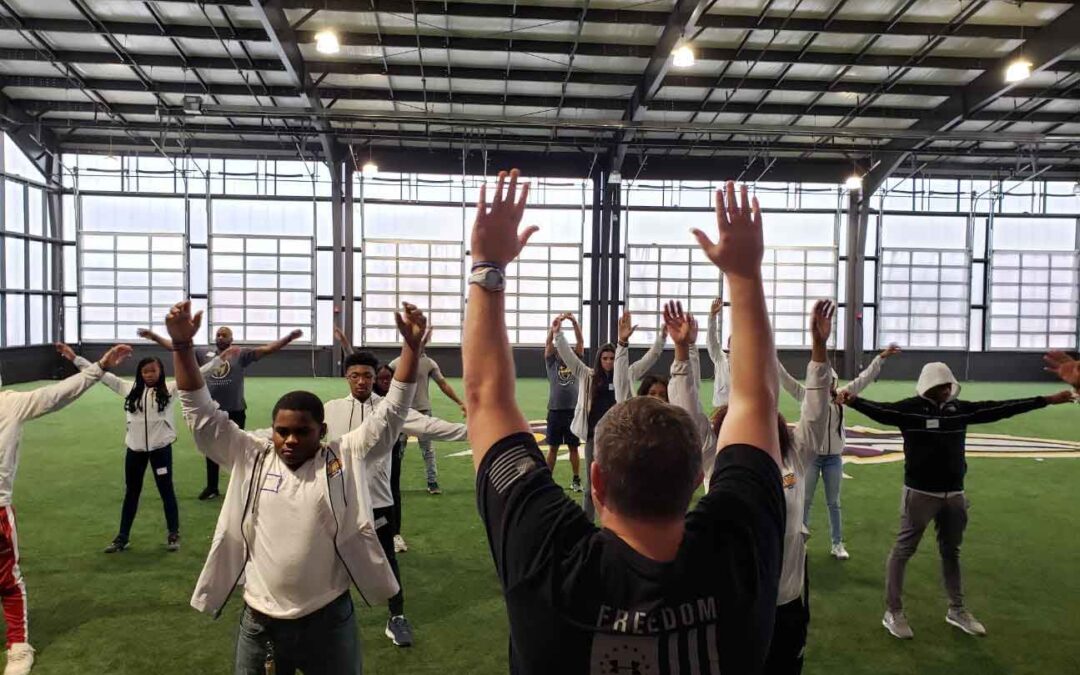I took my first mindfulness course for professional psychotherapists, as a young clinician, nearly two decades ago with a wonderful woman named Susan Drobis, LICSW. I will be forever grateful for that experience, as it changed the direction of my life. I was looking for CEU’s to maintain my license, the cost was reasonable, and mindfulness sounded interesting enough to me.
After several hours spent exploring our minds, thoughts, feelings, and physical sensations, through practices such as the body scan, I began to see just how much tension and stress I was holding onto in the body, and I was bringing with me in each moment. It was stunning. My doctor had wanted to put me on high blood pressure medication, which I rejected, but now was able to see. The stress and tension eating away at my body was with me all the time and I didn’t even know it, and wasn’t even aware of it. Through a determined mindfulness practice, I was able to cultivate a sense of peace and calm, which was palpable. Mindfulness meditation blew me away. My blood pressure slowed down, my tension reduced, and I was able to relax.
I made a decision that day that if this practice could help me in such a powerful way, then this was something I needed to learn more about, and eventually teach, this was the meaning I had been looking for. What I learned later reading Full Catastrophe Living, by Jon Kabat-Zinn and as a student of MBSR were the 7 Attitudinal Foundations of Mindfulness, which are the major pillars of the practice which we will examine, with little anecdotes from my own experience. They are as follows:
- Non-Judging
- Patience
- Beginner’s Mind
- Trust
- Non-Striving
- Acceptance
- Letting Go
Non-Judging: When we start to pay attention to our moment to moment awareness, we start to see our thoughts, patterns, and conditioned behaviors, and just how often we make judgments about people, places, events, and even ourselves. There is no bigger critic than ourselves. In one of my first silent meditation retreats I had been sitting near a man who I had concocted an entire story about how he is this way or that, only to meet the person and have an amazing conversation with him that highlighted quite vividly that the mind is capable of deception, and I should not always trust my thoughts. I was embarrassed at myself and the story I created about someone I didn’t even know, and thankfully laughed about how far off I had been on this person. Thoughts are simply mental events that come and go. Seeing each thought as a thought, with a kind, gentle attention, and non-judgment is mindfulness.
Patience: Is a form of wisdom to see things as they unfold in their own time. We could all use more patience. Patience for others, and for ourselves. Patience is defined as the ability to endure difficult circumstances such as perseverance in the face of delay; tolerance of provocation without responding in annoyance/anger; or forbearance when under strain, especially when faced with longer-term difficulties. As my teacher Pete Kirchmer told me recently, “Patience is always a good choice,” and I believe he was right.
A couple years ago I was shopping in a store, where my patience is always thin, and I got in a line with one lady checking out. I thought I made a wise choice as I could leave the store quickly. But something happened, she had coupons! Many of them! I had never seen someone with so many coupons, and when she was done with the stack of paper coupons, she had some more on her phone. My face probably turned a special kind of red and I was filled with rage. I would rather not recall the thoughts I was having, but somewhere in the midst of my emotional state I remembered something Ram Dass, famed psychologist and spiritual teacher, and author of Be Here Now, had mentioned regarding opportunities to practice. There was no better moment for myself to choose with mindful intention to practice patience, and so I did. My practice has informed me to this day that I need to practice more than I do, after all I am just a flawed human being.
Beginner’s Mind: Imagine the joy of a child experiencing, seeing, or learning something new for the first time. Scoring a goal, making a basket, trying to impress a parent or a friend. It can be amazing! Now imagine if you are able to approach a moment free of judgment, skewed perceptions, negative thoughts, and seeing things as they really are. It can be difficult but not impossible. How often have our own thoughts and perceptions prevented us from being fully present with ourselves and our loved ones, to our own detriment. Seeing my son or daughter’s soccer game and actually being present for the moment he or she scores a goal, and not checking facebook, twitter, instagram, or thinking about work and the next thing, imagine…
Trust: Learning the ability to trust yourself and your authority. You are in the driver’s seat of your own life. Sure, our thoughts might not always be accurate, but we have to learn to trust ourselves, our wisdom, and intuition. We can learn from our failures through self-compassion and resilience to cultivate a growth mindset. And to do that, we have to trust ourselves sometimes, which hopefully leads to greater confidence and self-esteem. There is no one holding you back but you. Think about that, really! Know this and you will find your freedom. It is too easy and lazy to blame others for our misfortune. I have often found myself frustrated that I didn’t have my dream job until I realized that it already existed, I just had to trust myself that it was possible and believe in myself. That is the concept of trust in mindfulness.
Non-Striving: In mindfulness, we observe the present moment, purposefully, and with non-judgment. There is no place to be or not be, or state to accomplish. No goal to achieve. Sounds counterintuitive, but striving and attachment can be obstacles to practice. We are not trying to “feel good” or “make our minds blank,” which is silly and impossible.We are simply bringing a kind and gentle awareness to what is present in this moment, whether it is pleasant, unpleasant, or neutral. I once experienced euphoria in a sitting, five years ago! It was quite pleasant, and I would love to experience it again, but it would have been a long and frustrating five years seeking out that moment again. Fact is I often find sitting to be a challenge, but life is challenging, and since there is no goal, non-striving allows us to be present with whatever is happening right now in our lives. As my dear friend and colleague Drew Buss, of Into Balance, shared recently “The more you strive and search for happiness, the more you overlook the possibility that it is already here.”
Acceptance: Sometimes radical, and incredibly therapeutic, we must learn to accept ourselves for who we are if we are to make meaningful change in our lives. Sometimes we succeed. Sometimes we fail miserably. Life is the full catastrophe, and we as humans experience a broad range of events in our lives. What has happened has already happened, the past can’t be changed. The only moment we have to do anything with, respond, and take action in is this present moment, NOW! Experiencing a divorce was unpleasant for me, but life goes on. Sometimes you have to accept events that are unpleasant and uncomfortable. Once you accept them, however, whether it is a failure or even a success you can learn from them in order to grow. When you grow you get stronger, and we are all capable of cultivating a growth mindset. We all want to succeed and win, but we have to accept the fact that sometimes we won’t, and that’s okay, for we know we can be brave, resilient, can improve, and should we choose become stronger.
Letting Go: A fundamental concept of mindfulness is cultivating the skill of letting things go, or letting them be. We can choose not to avoid or run away from obstacles, challenges, or even sever and chronic pain we experience which is unpleasant but to observe the thoughts, physical sensations, and emotions no matter how pleasant or unpleasant they are, and allowing them to be as you observe them in the present moment, and without judgment, kindness, and compassion. And giving yourself permission to allow them to come into the field of our awareness and pass. All things are impermanent. Embracing obstacles in any moment with patience, compassion, and kindness. It should be noted that this is a challenging concept to learn. I can hold on to my personal failures forever, but it won’t help me grow. Thomas Edison failed many times before he invented the light bulb. Michael Jordan missed thousands of shots, but made a few of them we’ll remember forever. Each man continued to work harder, grow, and evolved because of their failure, much to our convenience and delight. I would argue their failure motivated them to succeed. Letting go, or letting things be, allows us to make forward progress. And if we fail, fall forward always!

